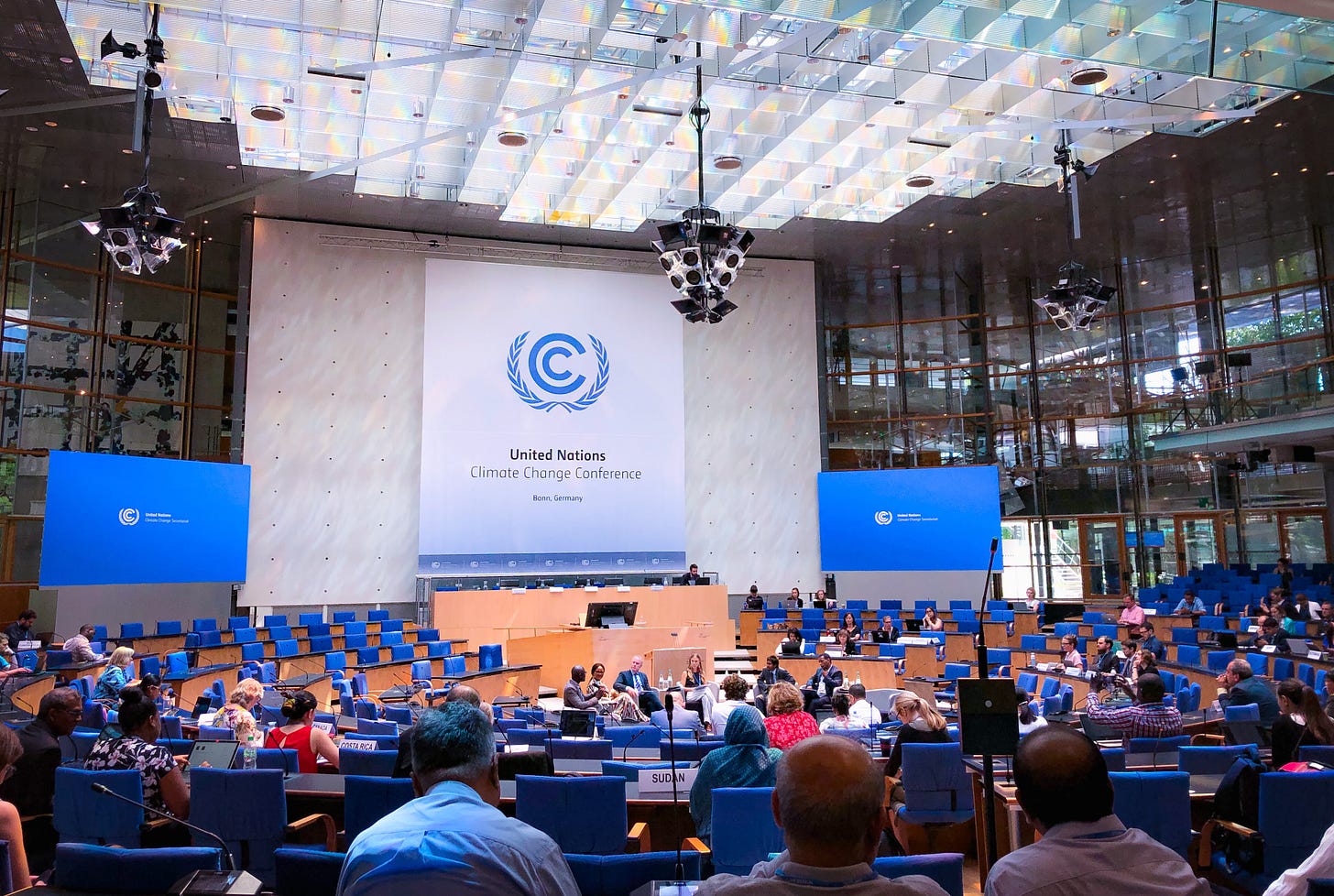Future security of people & nature will depend on strong civil society, good food finance & honest economics
This moment is different; we need informed climate civics, everywhere.
We cannot afford to waste any time or make any mistakes in moving to a climate-smart way of doing business.
Climate disruption is now pervasive, and the window for successful climate resilient development is closing fast.
Multiple converging crises are compressing our window of opportunity and risk putting a sustainable future out of reach.
What we do now will determine how billions of people live, and how safe they are, decades from now.
In Citizens’ Climate International’s Earth Day Citizens’ Forum, we heard from Olha Boiko, coordinator of the Climate Action Network for Eastern Europe, the Caucasus, and Central Asia (CAN-EECCA). She brought a message of hard-won wisdom, from the perspective of a society facing a direct and overwhelming threat to human safety, rights, and sovereignty. Her message: Civil society is strength.
The degree to which a society is practiced at organizing locally, working together to solve problems large and small, and collaborating across different perspectives, determines how well that society can respond to adversity. Adaptive capacity isn’t an authoritarian strength; it is a strength of open and cooperative societies.
This is why we launched an updated, expanded Engage4Climate Toolkit for local stakeholder meetings to shape climate policy.
Informed civics is vital for securing a livable future, so we are revving up our efforts to support informed civics everywhere.
Good Food Finance Week highlights areas of action to speed investment to sustainable food systems.
The Good Food Finance Network—which is co-convened by EAT, FAIRR, Food Systems for the Future, the UN Environment Programme, and the World Business Council on Sustainable Development—is convening a week of meetings, to bring financial leaders together with experts, advocates, and innovators, to focus on actions that can mobilize finance for sustainable, healthy, and inclusive food systems.

The Good Food Finance Week agenda will include:
Leaders Dialogue on Catalyzing Good Food Finance to address COVID, Climate, and Conflict-related risks – Monday, April 25
Public Finance Panel on Fiscal and Agricultural Support Policies to Address Climate and Food Security – Tuesday, April 26
Investors: Input Workshop – Tuesday, April 26
Data Workshop on Food Systems Business Intelligence: Integrating data systems to secure and build on sustainable returns – Wednesday, April 27
Incentives and De-Risking Workshop on Embedding nature in business practice, examining the role of public and private sector finance in incentivising sustainable food systems – Thursday, April 28
Targets and Metrics Workshop on Tracking Progress towards Sustainable Food Systems Finance: Priority areas for action on good food finance targets and metrics – Thursday, April 28
The High Ambition Group will hold a closed Working Meeting for peer-to-peer exchange and an Open Meeting for interested institutions – Friday, April 29
Prices shape our experience; they need to tell the truth.
Scientific evidence clearly confirms that global heating and worsening climate disruption are driven by the burning of carbon-emitting fossil fuels. Those fuels are artificially cheap almost everywhere, due to nearly $6 trillion a year in direct and indirect subsidies. (That’s about $11 million every minute.)
We need strong, economy-wide pollution pricing policies that build value for people and communities, to make the market tell the truth about the high cost of artificially cheap fuels. Such policies can be designed to relieve—instead of increasing—pressure on the economically vulnerable, and on the affordability of food supplies, if revenues are returned to households as climate income.
Many other policies, incentives, regulatory interventions, and innovative financing approaches, can also help markets tell the truth about which energy sources create more real-world value for people and for planetary systems.

In CCI’s policy brief to the SBSTA 56 (the UN Climate Change scientific and technical assistance negotiations that will take place in Bonn, Germany, in June), we outlined 12 “non-market approaches” that can play a role:
Financial regulations, trade-related conditionalities, and border adjustments and related negotiations, that allow nations to cooperate to secure a faster pace of decarbonization;
Climate income policies, which create an economically efficient, fast-moving decarbonization pathway, and foster green recovery by setting strong, steadily rising carbon prices, with revenues returned to households and communities, to ensure price pressures fall on polluters;
Domestic and cooperative mechanisms that support carbon border adjustments, to ensure climate leaders don’t lose trade to pollution offshoring;
Diplomatic, fiscal, and policy action toward an effective international “floor price” for carbon pollution;
Regulatory measures that mandate accounting, disclosure, and avoidance of carbon-related liabilities;
Enabling policies that create conditions for climate-smart, nature-positive financial instruments;
Linking Special Drawing Rights (SDR) to Paris Agreement action and funding, given the urgency of scaling up mainstream finance for climate mitigation, adaptation, and resilience, from the public, private, and multilateral sectors;
Labeling, accounting, data-sharing, impact tracking, and transparency practices that expand opportunity for mainstreaming of climate-smart finance;
Food systems innovation measures, supported by policies, financial instruments, consumer health and safety regulations, and the linking of multifocal science insights to impact investment strategies by public, private, and multilateral institutions.
Policies, institutional arrangements, and business model innovation incentives that support integration of Earth science data platforms into financial decision-making information flows;
Direct and indirect incentives and blended financing strategies that support accelerated transition of emissions-dependent local and regional economies to climate-smart low-emissions standards and practices;
Action by existing international institutions to become engines for climate action incentives and enforcement, connecting climate action aims, impacts, and metrics, to their respective decision-making, financing, and multilateral policy intervention capabilities.
All of these tools can be brought to bear at global, national, and local scales, to make climate-smart practices the everyday norm. Doing that will make all of the Sustainable Development Goals more attainable.


